Lakis Fourouklas's Blog, page 25
July 18, 2012
Book Review: The Fear Artist by Timothy Hallinan
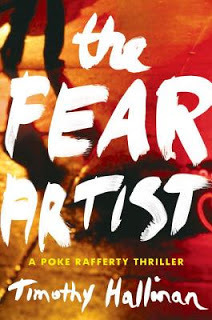
The Fear Artist by Timothy Hallinan that was released yesterday is a fast-paced thriller that takes place in Bangkok, Thailand.
This is the fifth book in a series starring Poke Rafferty, a man who somehow always finds a way to get himself into trouble. It’s not as if he’s inviting it, it’s just that trouble follows him wherever he goes, even outside a shop that sells paints in a street in Bangkok.
The author seems to know the city inside out and so does his hero. Poke has been living there for years with his Thai wife Rose and his adopted daughter Miaow.
As I already mentioned Poke has the special ability to attract trouble. What happens this time around though seems to be more than he can handle: a man virtually drops dead at his feet, as he’s coming out of a shop. He went there to buy some paints and what he bought was, well, business as usual. The man is a foreigner, most probably an American, and before he dies, from more than one gunshot wounds, he manages to whisper a name and a place in Poke’s ear, and drop a piece of paper in his pocket.
Poke is understandably stunned. And to make things even worse a TV crew is fast on the scene, so unless the world turns upside down he’s bound to become famous, at least for a day. However, that’s the least of his troubles, as the police arrives there soon enough and a couple of cops start to question him. He feels irritated but he tries hard to calm himself down, since he knows all too well that anger can get you nowhere.
At the moment he’s obviously considered a witness to a crime, soon enough though that is bound to change, and he’ll only have himself to thank for that; himself and his stubbornness and curiosity. Why, can’t he simply let sleeping dogs lie? Why does he have to ask too many questions? Why does he have to visit disreputable places and chit-chat with some suspicious characters, spooks of old, that can provide him with some answers, but who could also put him into more trouble?
Well, that’s Poke for you. As we follow him around Bangkok, in bars and hotels, in the streets and the malls and the police station, we get to know him better, and the better we get to know him the more we will understand his actions.
The truth is that before that man dropped dead before him, he felt happy and serene in an unlikely for his temperament way. His family meant the world to him, he had a good friend who was a cop and with whom he shared all his secrets, he had made peace with his past and started looking forward to the future; a future that all of a sudden seemed to be in jeopardy.
Poke is not a people’s person, but he’s a man of the people; someone who’ll do anything to help a friend, to save a poor soul from life on the street, to solve a murder. What we are is what we do, that’s what he thinks, and that’s how he acts. This time though he seems to have gone way over his head and in order to survive he has to seek some help. Some of it he’ll buy, most of it he’ll receive as an unexpected gift and a blessing in his life.

Published on July 18, 2012 01:52
July 17, 2012
Book Review: Murder in Mumbai by K.D. Calamur
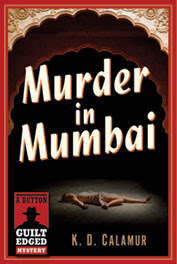
Murder in Mumbai is one of those special novels that open the eyes of the reader to the truths of the East, and, in this case in particular, India.
The author, who grew up there, seems to have a love and hate relationship not with his country, but with the city where the action of this book takes place:
“Anyone who’s lived in Mumbai will understand this: You love it; you hate it; you loathe it; you embrace it.”
Well, the two main characters here, Inspector Vijay Gaikwad and journalist Jay Ganesh, seem to share these feelings. They love their city, but they hate its wealth and its poverty, the never-ending traffic jams, the way that the system operates and the fact that no two people are the same under the sun.
For instance, we learn, that if a foreigner or a rich man gets murdered there’s an outcry in the press and the politicians lean heavily on the shoulders of the cops and want instant results, while if a poor man is killed he hardly gets a mention in the broadsheets or the radio.
The victim in this case is not only rich, but a foreigner as well. Her name is Liz Barton and she’s the CEO of a mining company. Who killed her and why? The truth is that she did have a lot of enemies: an environmentalist, a man who’s been left behind in order for her to take the position that was meant for him in the company, a husband who’s unhappy and unfaithful, and probably an opponent from some other company.
Gaikwad is ordered to investigate the case, but in order to do that maybe he just has to cut a deal with the devil. Who’s that? None other than Jay Ganesh. Gaiwad doesn’t like journalists, but he does seem to tolerate Ganesh since the man has more than a little integrity; while Ganesh, even though he has some informers in the force, doesn’t seem to be very fond of cops, but he gives credit to Gaiwad for being honest and not on the take, unlike many others.
Thus the two of them agree to conduct their separate investigations and if something turns up to inform each other.
But investigating a murder case is just not enough for Ganesh, who’s been let go from his previous post in a newspaper for pointing his arrows towards the city’s rich, corrupt and mighty. So at the same time, he continues to look into a series of burglaries that took place in the past few weeks in rich neighborhoods. The perpetrators seemed to be way too smart for the authorities to handle, but maybe he can take them on all by himself.
As the story continues and the plot unfolds and spreads in different directions the author never misses a chance to talk about what’s happening in the city: the new found wealth, the non-stop ancient poverty, the plights of the common people and the excesses of the rich. He takes us into slums and palaces, into shacks and dazzling skyscrapers, he shows us the big grim picture that’s hidden behind the small grand one.
His heroes are ordinary people, who try to lead ordinary lives, while at the same time working hard in order to make a difference in the lives of others. Sometimes they do, sometimes they don’t. The most important thing is though that they never give up hope.
This is a great novel that I would not only recommend to the fans of crime fiction but also to anyone who’s interested in learning some things about this new and exciting world of ours, as well to those that really enjoy to read a good story that has a lot to say.

Published on July 17, 2012 03:25
July 16, 2012
Book Review: Skin by Mickey Spillane and Max Allan Collins
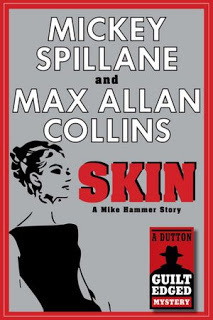
Mickey Spillane told his wife before he died to give every little thing that was left behind to his good friend and collaborator Max Allan Collins; and she did.
Skin is one of the stories that the former have started writing and the latter took the task of completing. It stars P.I. Mike Hammer, the most famous character created by Spillane, who all of a sudden finds himself investigating a mysterious case that seems to have more to it than what at first meets the eye.
It all begins when Hammer, while returning back to town from a meeting of sorts from upstate New York, discovers some dismembered bodies at the side of the road. No longer being a police officer he decides to call Pat Chambers, a man who also attended the meeting, and who’s the Captain of the Homicide Squad. Soon enough the locals join the game as well, followed by an attractive TV journalist called Melodie Anderson.
Melodie seems to be a tough cookie and as she recognizes Hammer, he was her father’s hero she says, she tries to get him to talk to her about the case. Well, Hammer likes being famous, but for the time being he doesn’t seem to have a lot to say. However he exchanges professional cards with the woman and they both head their separate ways.
At first Hammer wants to stay away from the case, but as it seems that’s easier said than done. For starters he’s just too curious to let it go, and then, when the hand of one of the victims is identified as belonging to a famous Broadway producer called Victor King, who’s been reported missing a week before, he has no other choice as to investigate, since he’s hired by the victim’s very young wife to do so.
Well, Hammer has nothing more than his cold logic and his instincts to go on with, and that’s exactly what he does. As he collects bits and pieces of information, as he learns more things about the region, and about a series of events that took place there at years past, he’s certain that if he really wants to find out who the killer is he has to return to the scene of the crimes.
In the meantime Melodie and her cameraman Jason go missing and he has no doubts, than being who she is she’s definitely got herself into trouble. But, what kind of trouble? And do they have anything to do with the case?
As the mystery deepens, the action picks up pace towards the final goal: Hammer’s rough allotment of justice.
I’m sure the noir fiction fans will enjoy this eBook short that seems to come from a different era, but which in reality is a quite modern-world story.

Published on July 16, 2012 00:58
July 13, 2012
Graphic Novel Review: Afrika by Hermann
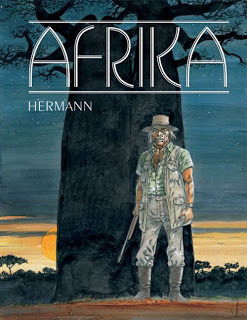
Hermann is a widely acclaimed author and illustrator of graphic novels from Belgium.
In Afrika he tells us the story of Dario Ferrer who lives and works in a wildlife reserve in Tanzania.
At the moment Dario is pretty angry because he’s just lost a rhino, and to make things even worse, an uninvited guest arrives; a young and kind of naïve journalist called Charlotte, who’s been sent there by a common acquaintance, Yan Lefort.
Right from the start Dario feels enraged by this woman who seems to think that she knows everything, while in fact she knows almost nothing about what goes on in the region. And as if that’s not enough she decides to show him how wrong he is in doing what he’s doing, since there’s always a better way.
What does he do? Well, he pays the poachers in their own currency. If he meets them he shoots them, if he finds them while hunting, he hunts them like the animals they intend to kill. He’s a hard-ass and doesn’t give a damn about what the people think about him.
Well, time will prove him right and sooner rather than later Charlotte will come to realize that corruption rules the day there, that poaching is an everyday brutal practice and that the local government officials are only interested in doing business with the foreigners.
In the end Dario is the only person that stands between the criminals and the elimination of a big part of the wild-animals kingdom. As the future will show, he’s also the only one that can save her life, as their by then common enemies, will sent a ruthless man after them to teach them a lesson; a final lesson.
Hermann delivers to the reader a somewhat short but beautifully written and illustrated story that sheds plenty of light on the grim subject at hand, but he also creates an unforgettable character. Dario has his set of values and beliefs for which he’s willing to fight and/or even die. He’s as hardcore as they come, but he’s no super-hero, he has his weaknesses, and it’s exactly those that make him look more human than most.
The author makes us believe in this hero and somehow he also manages to plant into our heads the idea that if people like him really existed someplace out there, this world would be a much better place to live in. Dario may be violent, but that doesn’t mean that he’s not fair, and in the end that’s all that counts.

Published on July 13, 2012 01:58
July 12, 2012
Petros Markaris: The Greek Master of Crime Fiction

He’s a household name among crime fiction aficionados. His books have
been translated into fourteen languages and are sold in more than twenty
countries in the world. His last novel, I Pairaiosi, has sold
fourteen editions in Greece (that should be over thirty thousand copies)
in a little less than a month. And yet not many people know him in the
English-speaking world. I believe that sooner or later that is going to
change.
Continue at Criminal Element

Published on July 12, 2012 01:48
July 11, 2012
Book Review: A Raging Storm by Richard Castle
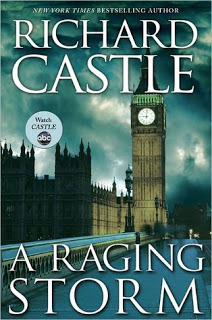
The second volume of the eBook novel featuring the not so retired agent Derrick Storm, A Raging Storm, starts like this: “A dead United States senator was in his arms.”
How did he end up there? That we already know from the first part of the story, A Brewing Storm. A sniper shot Senator Thurston Winslow from the roof of the police headquarters building in Washington D.C.
Before he died though, he managed to whisper a few words into Storm’s ear: “Midas. Jedidiah knows.”
Jedidiah Jones was Storm’s former boss, a man to whom he owes his life, and he was the one who called him in, in order to help save the Senator’s stepson who’s been kidnapped; something which did not turn really well either, as he also ended up dead.
Storm needs to think things out to make a sense of what is really happening, but right now time is not a luxury he can afford; he has a killer to catch. Thus he goes after him, along with FBI agent April Showers, with whom right from the start, he has a certain love and hate relationship. She doesn’t like him but he likes her. On the other hand, he seems to like all women.
Anyway, the killer escapes and once again they are trying to pick up the pieces left behind. Time though, as I already said, is not on their side, so in a rush, they have to pack up their things and fly to London, where they are scheduled to meet Ivan Petrov, an oligarch and sworn enemy of Russian president Oleg Barkovsky.
The way the author describes Barkovsky brings to mind president Putin, as he is also a populist and autarchic leader, who’s determined to take the country back to the glory days of the former Soviet Union, while allowing elections to take place and the market to reign free. His rhetoric turns time and again against the western powers, who are trying to undermine Russia.
Well, the Americans and the Brits are not enemies with the Russians anymore, but they are not good friends either. So they are trying, under a cover of deep secrecy, to help Petrov move on with his plans of undermining Barkovsky’s authority.
However, there seems to be a traitor in their ranks, since the arrival of agent Showers in London, all of a sudden, becomes public knowledge, while certain people seem to have them on their scope: their rooms are bugged, they are followed wherever they go, and the people they talk with, well, they seem to hide more than what they say.
Storm, is much more experienced than his colleague in this game, but that will not prove enough to help them avoid new and serious trouble. The two of them will come time and again face to face with double agents, expert assassins and traitors, and at the end of the day they’ll just try to save whatever can be saved from what now seems to be an unavoidable wreck.
Who to trust anymore they do not know, so it is up to them to make things right. How? Well, I guess we’ll find out next month, when A Bloody Storm comes out.

Published on July 11, 2012 04:21
July 10, 2012
Book Review: The Joy Brigade by Martin Limón
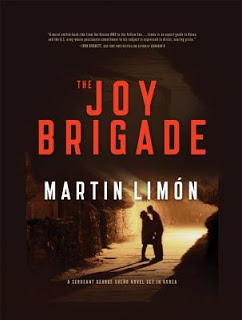
The events narrated in The Joy Brigade take place in the early 1970s, when the passions are still heated on the Korean peninsula. The presence of the US Army in the South makes the people feel more and more uncomfortable, while in the North the People’s Army seems to be preparing for a big event: an assault against the former in order to reunite the country.
The US army chiefs feel quite unsettled about the situation and that’s exactly when Sergeant George Sueño, a young Mexican American stationed indefinitely with the U.S. 8th Army in South Korea as a Military Police detective, comes in. This time his mission though is quite different, as he no longer has to try and make soldiers behave, but is ordered to do the impossible: infiltrate the inner circles of the North Korean Communist Party.
Why do that? To smuggle out an ancient map detailing the network of secret tunnels that run underneath the De-Militarized Zone. How is he supposed to do that? By meeting its keeper, Doc Yong, as he calls her, an ex-lover of his that had to flee to the North after she was accused of murder.
Things are complicated to start with, but they will become more so as he’ll arrive at the North Korean port city of Nampo, aboard an Albanian merchant freighter. He first has to escape the attention of the port authorities and then meet a disillusioned hero of the revolution who’s supposed to take him to Pyongyang, where he’s going to meet the Doc, but also compete in a Taekwondo tournament in order to get closer to his goals. Talk about complicated, huh!
There’s an old proverb that goes: When the people are planning the gods are laughing. Well the gods would have a pretty good laugh if they caught a sniff of George’s plans. This is not a novel where someone would wonder how something could go wrong, but one where he or she would be surprised if nothing did.
Even the hero has his doubts as to whether his mission could ever be accomplished, as he’s afraid that he’ll not only get arrested but that he’ll be tortured as well. The plan is ridiculous and he knows it, everyone does, but yet he has no other option; it’s either try and stop a war, or do nothing and pay the consequences.
Well, he tries. He tries hard. And he succeeds. And he fails. Yes, he does both, since his is a mission of many and varying parts, with varying degrees of difficulty. During his long journey into the secluded country he’ll come to learn a lot of things about its people, he’ll face danger and meet kindness, and he’ll get to know tenderness and bathe in deception.
The author seems to know his subject matter so well that the events he describes sound more or less true. The wars, the landscape, the madness, he describes in words rich in their simplicity. As for his characters, they are all full of passions and with deep belief in their causes, even the infamous ones, like the pretty and sadistic she-Captain Rhee Mi-sook and the infamous Moon Chaser, a man of many faults and just as many qualities.
The Joy Brigade, that took its name from a female brigade, the members of which were supposed to serve the nation and the Great Leader by becoming slaves to the male elite, is not only a thriller. It’s also a story about fathers and daughters, about pride in war and disgrace, and about love in its most pure and its most vile forms.
Love is beauty, love is life, but at the same time it could be ugliness and death. The author masterfully plants into his story the different manifestations of love, which at some points offer the reader more thrilling moments than the action itself.

Published on July 10, 2012 07:14
July 9, 2012
Book Review: Only One Life by Sara Blaedel
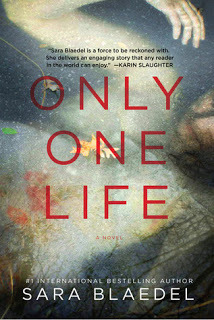
Only One Life by Sara Blaedel is a Danish procedural.
It was clearly no ordinary drowning. Inspector Louise Rick is
immediately called out to Holbraek Fjord when a young immigrant girl is
found in the watery depths, a piece of concrete tied around her waist
and two mysterious circular patches on the back of her neck.
Her name was Samra, and Louise soon learns that her short life was a
sad story. Her father had already been charged once with assaulting her
and her mother, Sada, who makes it clear that her husband would indeed
be capable of killing Samra if she brought dishonor to the family. But
she maintains that Samra hadn’t done anything dishonorable. Then why was
she supposed to be sent back to Jordan? Samra’s best friend Dicta
thinks it was an honor killing. A few days later though Dicta is
discovered, bludgeoned to death, and Samra’s younger sister has gone
missing.
Only One Life by Danish author Sara Blaedel
is not so much a whodunit. I wouldn’t even say it’s a whydunit; it is,
to put it gently, a “what the heck happened?” kind of book.
Well, the synopsis above more or less summarizes what happened, but to know the story is not to understand the story. Only One Life
is one of those novels that has many layers. The first layer is made of
facts, the second of hidden truths, the third is composed primarily of
lies, the fourth talks about the social background and so forth.
Continue at Criminal Element

Published on July 09, 2012 23:30
Book Review: Havana Real by Yoani Sánchez
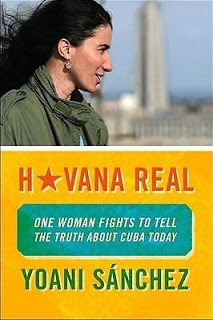
Havana Real includes some of the texts that Yoani Sánchez, the most famous Cuban blogger, have posted on her blog over a long period of time, and which in a very direct I’d dare say way, manage to dissolve the illusions of all those people in the west, especially Europe, that still think that Cuba is a socialist paradise of sorts.
Sánchez is, even though it would be unfair to label her, the voice of generation Y (the Greek Y and not the Latin as she’s fast to point out), as far as her homeland is concerned, since through her posts in the internet she has managed to shine a light on the other side of her country, the one the hordes of tourists never see and the comrades of faraway lands choose to ignore.
She writes about the oppression of the people by a ruthless regime, the widespread poverty, the corruption, and the intimidation tactics that are often used against the opponents of the state, the collapse of the health and education systems and the lack of critical for survival supplies in the markets. And she invites or rather dares all those people who claim that they sympathize with the hardships of the Cuban people to: “Come here and live as Cubans for a week. Then we can talk.”
Her mantra is, paraphrasing president Obama: “Yes, we want.” And they want nothing more but the basics: bread, education, freedom, in a country where someone can end up in jail for being predisposed to commit a crime.
1984 is there, and it really looks bad.

Published on July 09, 2012 03:16
July 6, 2012
Book Review: Pearl in the Sand by Tessa Afshar
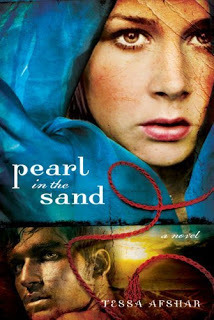
I guess one could say, without putting too much effort into it, that Pearl in the Sand by Tessa Ashfar, is a historical romance.
The events of the story take place in Palestine in the era of Moses. It’s exactly there and then that Rahab, one of the main characters, is born and raised. She and her family live in poverty and sometimes despair. That’s exactly why her father decides to sell her, or rather rented her out for a fee to a rich merchant; in order for them to survive.
Rahab will spend quite some time with the man and when she’s finally set free, she’ll decide that what she wants to do is become a prostitute. That way she will earn enough money, but she’ll also be afforded the benefit of being able to choose her own lovers.
The years will flow by fast and she’ll become not only rich, but also powerful and famous. However, whatever she does, no matter how much wealth she amasses, she cannot fill the void that she feels inside. There’s something missing from her life, but she doesn’t know what. And that until the winds of fortune start to follow a different course.
Everything changes in her life at about the time Moses, gets closer and closer to her city, while fighting against and beating in the fields of battle all the tribes that oppose the presence there of him and his people. By his side is Salmon, a man seemingly made out of stone, a fierce warrior and lover, with whom Rahab will fall passionately in love. But she will not only love him, as time goes by, she will also start to worship his god, a god that seems fair and compassionate if compared to the gods she has know so far. Thus she will follow that man and adopt his beliefs, and amidst the chaos of war the flowers of love will blossom.
I have to say that this is not a book that I would recommend to everyone since it’s obvious that its target market is the female reader.
It brilliantly starts off as a historical novel and ends up as a love story. I don’t know the history, or rather the mythology, of the region that well, so I cannot say if the author gives the reader a true representation of it, but that nevertheless doesn’t really matter, since the era only serves as the canvas onto which the mythos comes to life.

Published on July 06, 2012 02:36



